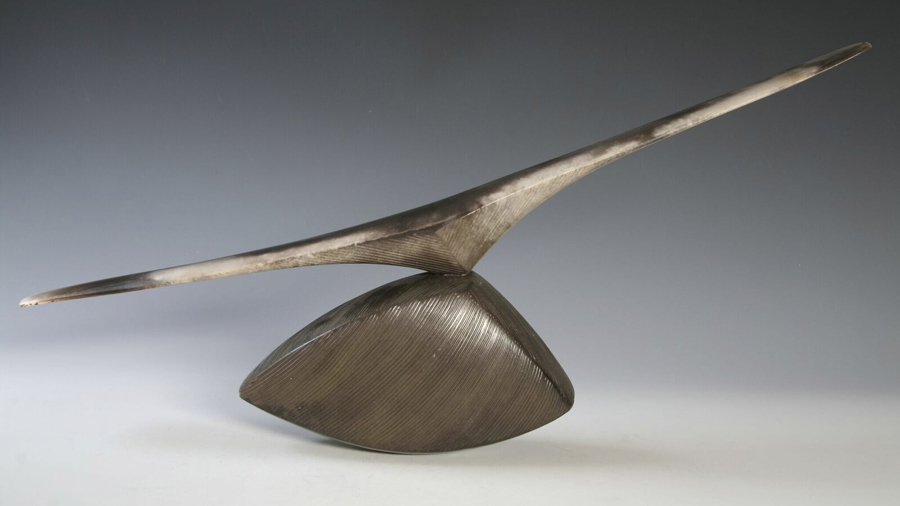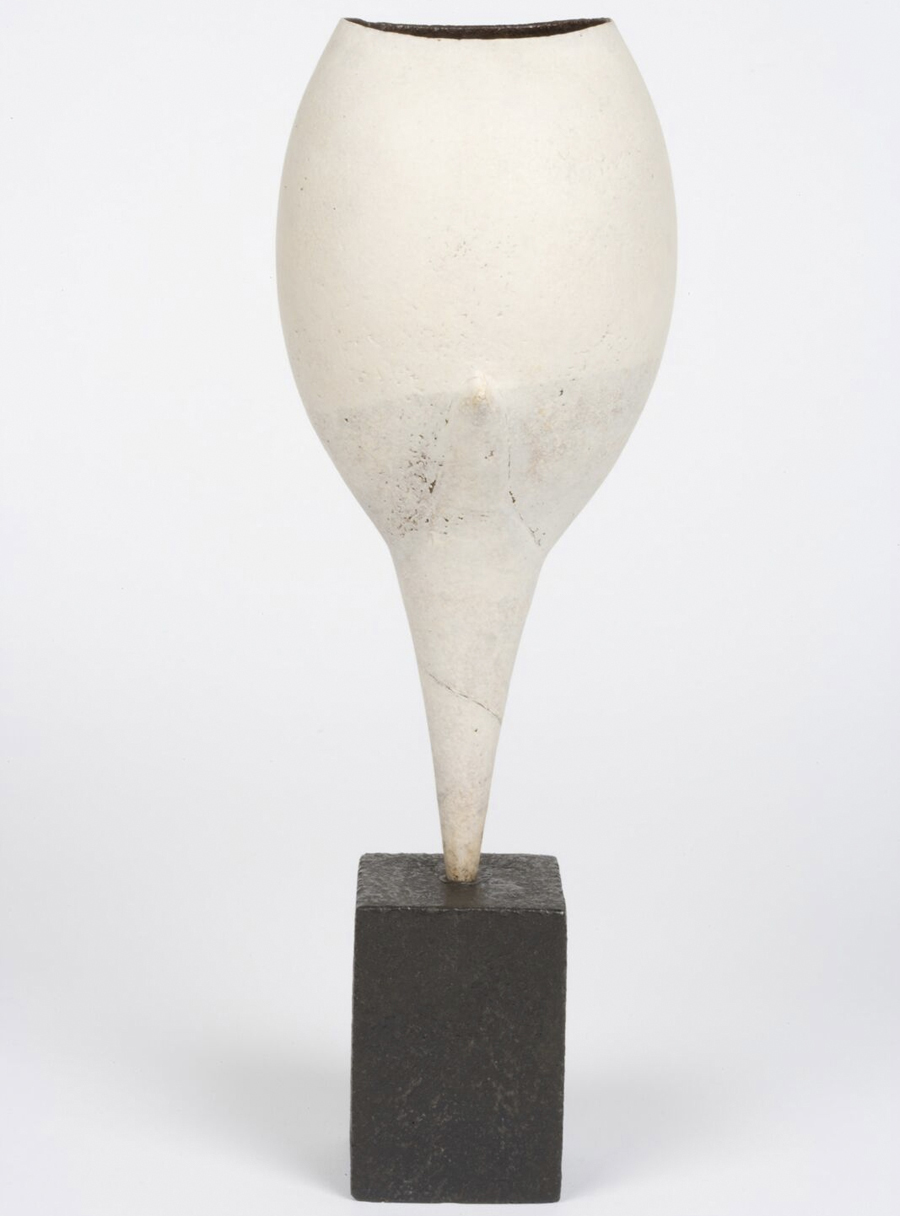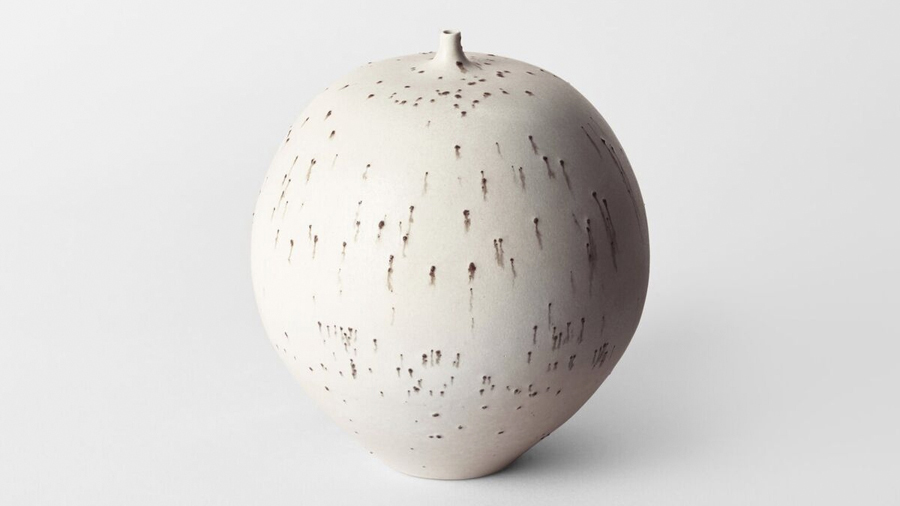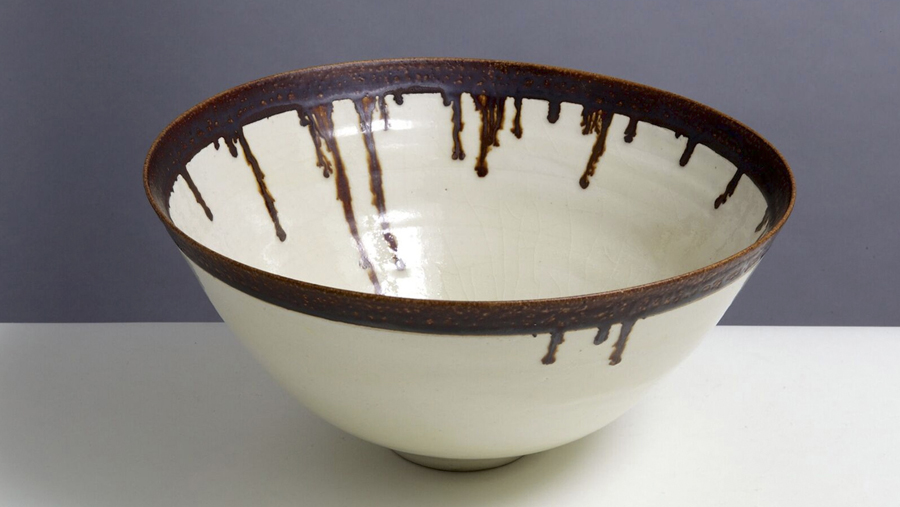Israeli composer Na’ama Zisser tells us about writing her Jewish opera Mamzer Bastard. Imagine you’re in New York in the 1970s. Jimmy Carter is either in office or about to be, bands like the Bee Gees and Elton John are vying for top spot in the charts, and one very apprehensive groom named Yoel is dreading his impending wedding…
Rose comes HOME: Richard Beecham and Janet Suzman discuss the play's return in Manchester
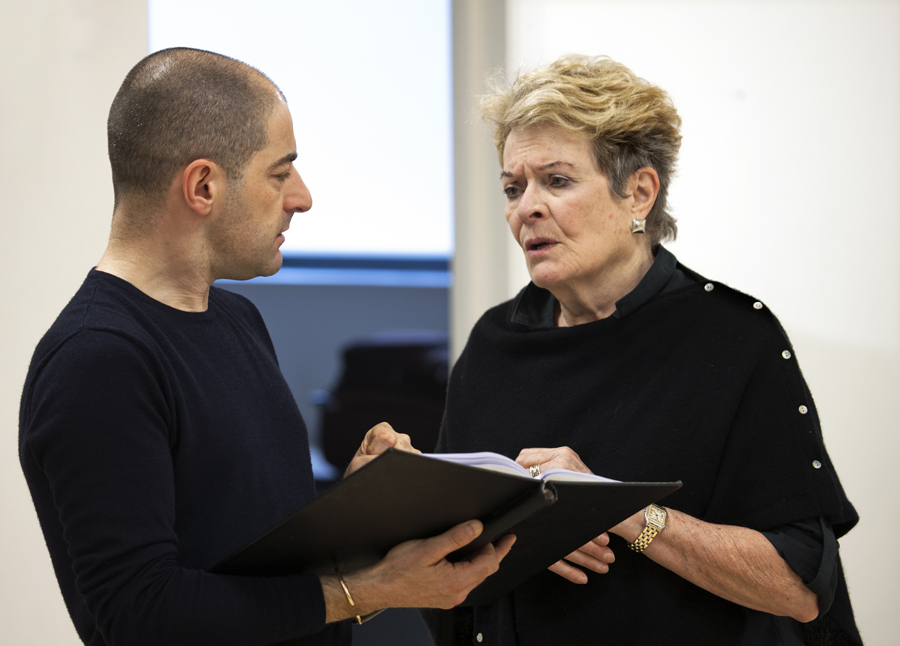 “There is no more demanding role in the canon than Rose,” declared Richard Beecham, director of the first UK revival of Martin Sherman’s award-winning play, which premiered at the National Theatre in 1999.
“There is no more demanding role in the canon than Rose,” declared Richard Beecham, director of the first UK revival of Martin Sherman’s award-winning play, which premiered at the National Theatre in 1999.
This one-actor tour de force about persecution, displacement and survival stars Dame Janet Suzman in what Beecham describes as an “extraordinary role for an older actress” and runs at HOME, Manchester, until Saturday 10 June. “Older chaps get the parts,” he explained when he and Suzman spoke to the press prior to the play’s opening. She agreed that there were too few roles for older actresses and interjected with a wry smile: “I can understand why Glenda Jackson said ‘bugger it – I’ll play King Lear’.”
Beecham describes how Sherman has written about “an extraordinary century for Jewish people”, which chimed, according to him, with the enormous refugee crisis we are living through now. “It feels current. It actually feels like a 21st century play,” he stressed.
The play is “a cracker about a life lived with wit and energy”, with Suzman adding: “Refugees are unbearably brave. They need to get out and so does Rose; she is in crisis all the time, facing a series of terrible choices.” From her home in Florida, an 80-year-old Rose takes us through her long life: from the shtetls of Eastern Europe, through Nazi occupied Warsaw, to Palestine, America and the so-called Occupied Territories.
When I ask Suzman to what extent she identifies with Rose, she replies by clasping both hands tightly together: “Like that!” She exclaims. “I have pity and respect for people who’ve had a ghastly life. I rebelled [in South Africa’s apartheid days], boycotted, was kicked around by police… I didn’t want to act in comfortable little plays or domestic comedy. I wanted to be on the edge.”
Rose, she says, is the first Jewish part she's played, describing her own attitude like Jonathan Miller’s: 'Jew-ish'. She proceeds to challenge us to name one good role written for a Jewish mother and states, in her deep, rich, resonant voice: “I haven’t Jew-ished myself.”
By Gita Conn
Rose runs until Saturday 10 June. 7.30pm, 2pm (1, 3, 7 & 10 Jun only). £10-£26.50. Home, Manchester, M15 4FN. 01612 001 500. https://homemcr.org
Click here to read more theatre features.
If This is a Man 70 years on: AL Kennedy discusses an anniversary reading of the Primo Levi novel
 At 3.15 pm on Sunday 30 April a cast of actors, writers and academics amongst others will read from the first page of Primo Levi’s seminal novel If This is a Man. Taking on chunks of the text each to read aloud, they will only stop when they reach the novel’s final page – an estimated six-hour feat. This unique reading is taking place at London’s Southbank Centre to mark 70 years since the publication of Levi’s harrowing account of the year he spent in Auschwitz concentration camp when he was 23 years old.
At 3.15 pm on Sunday 30 April a cast of actors, writers and academics amongst others will read from the first page of Primo Levi’s seminal novel If This is a Man. Taking on chunks of the text each to read aloud, they will only stop when they reach the novel’s final page – an estimated six-hour feat. This unique reading is taking place at London’s Southbank Centre to mark 70 years since the publication of Levi’s harrowing account of the year he spent in Auschwitz concentration camp when he was 23 years old.
We spoke to one of the curators of the event, novelist AL Kennedy, about why the book remains so significant today.
When did you first read If This Is A Man? I read If This Is A Man and the Truce (the accompanying volume that describes Levi’s experiences immediately after the liberation of Auschwitz) for the first time when I was a teenager. In the 1970s and 80s you were beginning to see mass representation of the Holocaust on TV so it was a subject that was beginning to make an impact on me.
I was brought up in a nominally Christian family, but my mother who was at teacher’s training college told me stories of a woman she trained with who had escaped from Europe under a train with her husband. It was the first time I had heard of anyone having to do something like that.
I was filled with the inescapable question: how could this have happened? As a teenager the book was one of my principle educational experiences.
Why is it important to read today? The seeds of the event were sewn last year. We had just had the Brexit vote and there was the discussion about EU citizens and their rights. There was a demonisation of foreigners here, and of Muslims in the States, and antisemitism alongside the rise of Donald Trump. The book seemed very prescient. Levi seemed to be saying that if you ignore the rise of these things the end result could be a prisoner death camp.
How can literature combat these trends? Books are a way to understand people who aren’t you.
Are you worried people might be put off the event because it is so long? It’s a long reading but we wanted to dispel the fear that terrible things will happen if we sit and listen to literature all night!
The further east you go in Europe, the longer the literary events go on, especially in the former Soviet Union countries. There is an understanding that it is a privilege to read literature, there is a hunger for it. In the past people risked their lives to hear literature. In Britain we take the freedom to read what we want for granted.
Literature balances oppression. We need to be wary as it is rolled back and becomes increasingly commercial. The importance of literature has drifted and we need to ensure that we don’t take it for granted.
By Rebecca Taylor
Photo by Donna-Lisa Healy
Primo Levi's If This is a Man takes place on Sunday 30 April. 3.15pm. £15-£25. Royal Festival Hall, Southbank Centre, SE1 8XX. 0844 875 0073. www.southbankcentre.co.uk
Click here to discover more interviews.
JR OutLoud: Debbie Chazen, the only Jewish Calendar Girl, talks about her new musical The Girls
First it was a play, then a film and now Calendar Girls has been made into a musical – already nominated for several Olivier Awards – with book and lyrics by Tim Firth, who wrote the play and co-wrote the film script (with Juliette Towhidi), and music by Gary Barlow.
The Girls tells the true story of members of a Yorkshire branch of the Women’s Institute who had the idea of posing for a nude calendar to raise money for Leukaemia Research, when the husband of one of the girls became ill and died from the disease.
As all the girls of the title are nominated jointly for an Olivier Award, Judi Herman spoke to Debbie Chazen, who has the distinction of being the only Jewish 'girl', as well as the only one who appeared in the original stage play.
Photo by Matt Crockett, Dewynters
The Girls runs until Saturday 15 July. 7.30pm (Tue-Sat), 2.30pm (Thu & Sat, plus Tue from 25 Apr). £29.50-£69.50. Phoenix Theatre, WC2H 0JP. 0844 871 7627. www.phoenixtheatrelondon.co.uk
Click here to listen to more interviews on JR OutLoud.
JR OutLoud: Bulgarian-born Dora Reisser tells her life story, from child refugee to prima ballerina and beyond
It’s Dora Reisser’s ability to reinvent herself – from child refugee to prima ballerina, actor, screen star and fashion designer – and in such nail-biting circumstances, that makes her memoir, Dora’s Story, so gripping. Judi Herman visited Reisser at her remarkable London home (it used to be a railway station) to hear more of the stories behind her book, which begins with the little-known history of how Bulgaria’s Jews survived the Holocaust; and about her life in the UK and Israel, including an eye-opening account of how she started her Reisser fashion house – just one of the many new stories Reisser has that could fill a sequel.
Dora's Story by Dora Reisser is out on Troubador. £9.99. www.troubador.co.uk
Click here to listen to more from JR OutLoud.
JR OutLoud: Dutch artist Sira Soetendorp discusses the family portraits in her exhibition Vanished Families
Following a visit to Auschwitz in 2012, Sira Soetendorp felt a deep need to preserve the memory of all the lost family members. The Dutch artist used carved outlines drawn in oil paint to fashion portraits based on family photographs, which make up her exhibition Vanished Families. Here she discusses the exhibit with JR's Arts Editor Judi Herman, plus you will hear Rabbi Awraham Soetendorp, Sira’s husband and Emeritus Rabbi of the Hague, who is an award-winning human rights advocate.
Vanished Families runs until Monday 27 February at Etz Chayim Gallery, Northwood & Pinner Liberal Synagogue, HA6 3AA. 019 2382 2592. Viewing by appointment: caroleannek17@gmail.com. www.npls.org.uk/etzchayim.htm
JR OutLoud: Listen to a guided audio tour of the Jewish Museum’s exhibition Shaping Ceramics with artist Janet Haig
Janet Haig is one of the ceramicists whose pieces (pictured above), as well as a film showing how she works, are featured in Shaping Ceramics at the Jewish Museum London. The exhibition explores the work of pioneering ceramicists, tracing their influence on subsequent generations of ceramic artists whose Jewish heritage has shaped their work. Polish-born artist Haig joins JR's arts editor Judi Herman here for a very personal tour of the exhibition, discussing the experiences that have moulded her work: from the hardships of the war years in a Siberian prison camp with her mother, to her formative childhood in Australia (where she studied painting) after they discovered that their closest family had perished in the Holocaust, to her arrival in the UK in 1962 and work teaching in a boys’ school.
Haig reveals that her first inspiration might go back as far as those harsh days in Siberia: “My mother was able to take one object with her [to Siberia] and she suddenly saw this little pot (I still have it in my possession), which she grabbed hold of because, as I was a baby, she thought it would be useful to warm things up. It’s enamel, blue on the outside, white on the inside and maybe that has had some kind of inspiration on my pots.”
Shaping Ceramics: From Lucie Rie to Edmund de Waal runs until Sunday 26 February, at Jewish Museum, NW1 7NB. 020 7284 7384. www.jewishmuseum.org.uk
Watch ceramic artist Janet Haig demonstrate the ancient pottery-making technique of hand building on Monday 23 January, 11.30am-12.30pm, £7.50, £6.50 concs, at Jewish Museum, NW1 7NB. 020 7284 7384. www.jewishmuseum.org.uk
Continue reading to see images of work featured in the exhibition, as mentioned in the interview; and find out more about key artists in the exhibition in the January 2017 issue of Jewish Renaissance.
JR OutLoud: Charles Dorfman talks about acting in hit comedy Luv - seasonal fun to light up winter
When Harry is talked down from throwing himself off a Bridge by old school friend Milt, who luckily happens to be passing, his life takes a different direction as he finds love in this 1963 comedy from Murray Schisgal. He's the prominent New York Jewish writer responsible for Tootsie, Dustin Hoffman’s cross-dressing film comedy hit. Here Charles Dorfman talks to Judi Herman about finding LUV and playing Harry; his co-stars Nick Barber and Elsie Bennett; his collaboration with director Gary Condes; and Dorfman’s Buckland Theatre Company, resident company at Park Theatre’s studio space, Park 90.
LUV runs until Saturday 7 January. 7.45pm (Tue-Sat), 7pm (13 Dec only), 3.15pm (Thu & Sat). £14.50-£18. Park Theatre, Clifton Terrace, N4 3JP. 020 7870 6876. www.parktheatre.co.uk
Read our review of LUV
JR OutLoud: An Imam, a Rabbi and a Priest walk into a comedy club… and debut as stand-up comics. They tell us more…
Imam Dr Muhammad Al-Hussaini, Rabbi Debbie Young-Somers and Reverend Steven Young tell Judi Herman about their hopes and fears for their very first comedy gig. An Imam, a Rabbi and a Priest Walk into a Comedy Club is taking place as part of JW3’s third annual UK Jewish Comedy Festival. And for an extra treat, hear Imam Muhammad demonstrate his prize-winning singing in Gaelic at the end of his chat with Judi!
An Imam, a Rabbi and a Priest Walk into a Comedy Club (with Q&A) is on Sunday 4 December, 5.30-6.30pm, £12, at JW3, London NW3 6ET; 020 7433 8988. www.jw3.org.uk/comedy
Listen to more JR OutLoud interviews
JR OutLoud: Lawyer turned comic Jeremie Bracka discusses his new show Thank you for Flying Hell-Al
Australian-Israeli comedian, actor and human rights lawyer Jeremie Bracka will be making his London debut on night one of JW3’s UK Jewish Comedy Festival (1-4 Dec). Here he talks to Judi Herman, JR’s arts editor, about life in the Middle East and Down Under, as well as his latest one-man show, Thank you for Flying Hell-Al, in which he uses storytelling, stand-up, character comedy and mockumentary to explore life in Israel and the experience of making Aliyah.
Thank you for Flying Hell-Al is on Thursday 1 December, 8.30pm, £15, at JW3, NW3 6ET; 020 7433 8989. www.jw3.org.uk




